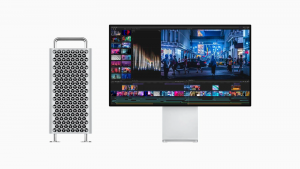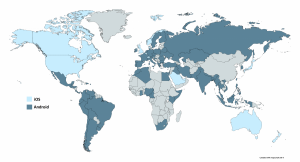Is privacy a luxury good?
By Keenan Szulik | February 7, 2020
As one of the largest companies in the world—now valued at over $1 trillion—Apple Inc. has masterfully crafted its products and its brand into an international powerhouse. In fact, in 2002, almost 20 years ago, Wired Magazine declared “Apple: It’s All About the Brand“, detailing how Apple’s brand and marketing had driven the continued rise of the company.
Industry experts used words like “humanistic”, “innovation”, and “imagination” to describe Apple’s brand in 2002. But now, in 2020, there’s a new word that comes to mind: luxury.
In many ways, Apple has been slowly moving itself into the luxury goods market for years: first with the Apple Watch in 2015, its first foray into wearable devices. Then, into jewelry, with the introduction of AirPods in 2016. More recently, with the iPhone X and its hefty price tag of $999. And to really cement itself as a luxury brand, Apple released its most expensive computer yet in late 2019. The price? Over $50,000.

Source: https://qz.com/1765449/the-apple-mac-pro-can-cost-over-50000/
Apple’s new Mac Pro, priced at over $50,000 when fully loaded with all possible customizations.
This (luxury) branding is important, especially as Apple continues its competitive war against Google’s Android. Android devices, unlike Apple’s iOS devices, are incredibly price accessible. They do not cost $999, like a new iPhone X.
Android’s price accessibility has enabled it to become the global smartphone market share leader, contrary to what some American readers may think. In fact, according to [estimates from IDC](https://www.idc.com/promo/smartphone-market-share/os), Android phones represent nearly 87% of smartphones globally, compared to Apple’s 13%.

Apple’s iOS dominates North America, but lags across the rest of the globe, per DeviceAtlas.
How has Apple responded in the face of competition and proliferation from Android? Privacy.
For over a decade, Google—the maker of Android smartphones—has been mired in privacy concerns. Most recently, a questionable handling of personally identifiable information in advertising and an Amnesty International report detailing “total contempt for Android users’ privacy” entrenched the stereotype that Google did not respect the privacy of its users.
Apple pounced on this opportunity, launching a series of ads titled “Privacy on iPhone” with the slogan “Privacy. That’s iPhone.” Two such ads, from 2019, now have over 25 million views each on YouTube.
This is where it gets interesting: by leveraging privacy as a competitive advantage, Apple associates privacy with its luxury brand. Apple customers deserve and receive privacy; the rest, not so much. This assertion is a subtle one, but it’s absolutely critical: Apple is effectively telling consumers that privacy is a luxury good.
There are two resultant questions from this:
1. Is privacy a luxury good, or a fundamental human right? (Let’s ignore, for the time being, defining “privacy”.)
2. Technically, how would Apple achieve this privacy in ways that its competitors would not?
The ethics of the human right to privacy is a fascinating debate for the 21st century. Smartphones are now nearly ubiquitous, and the meaning of privacy has changed dramatically over the last decade (as it almost certainly changed dramatically over every prior decade, thanks to technological innovation). But it’s worth noting: there are many technical tradeoffs when engineering with privacy as a goal.
Apple, for one, has taken many steps to engineer privacy into its products by creating “on-device intelligence” systems (which it has also effectively marketed). This means that rather than taking data and sending it back to Apple’s servers to be processed, the data can be processed on your phone, which you own and control. Google has also taken steps to achieve this on-device intelligence, but has communicated its benefits less effectively to consumers.
Building these on-device intelligence systems, however, is expensive. Privacy, in turn, is expensive. And Apple uses this, in part, to justify the high price tag on its iPhones (further asserting privacy as a luxury good).
All of this is to say that we’re in a trying time. As brands such as Apple and Google introduce privacy as a point of competition, we as consumers feel the impact of their choices. This could have a positive effect: Apple and Google could enter a privacy war, raising the privacy standards in a way that positively benefits all consumers. Or it could deepen divides, with privacy becoming a luxury good afforded to the rich and powerful, and revoked from those with less.
